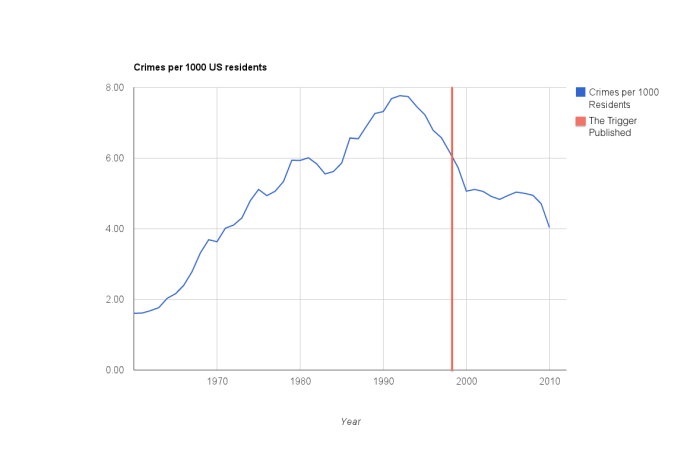The Trigger sets up a simple scenario: What happens if a few physicists stumble upon a device capable of remotely activating nitrate-based gunpowder, thus disabling most modern weapons.
“Never mind, don’t answer, I have to go light a prayer candle in the Grotto of Niels Bohr.”
In this sci-fi thriller, these scientists are the modern Manhattan Project of inverse proportions. They have an incredibly disruptive weapon; the question is: how will it be used, by whom, and when? Regardless of the answer, it will alter how the world works.
Why is this on our bookshelf?
I picked up this book mostly because of the first listed author—Arthur C. Clarke. No, sorry, Sir Arthur C. Clarke. He’s well known for his science fiction including 2001: a Space Odyssey. Michael Kube-McDowell, as it turns out, is no stranger to sci-fi, having written several Star Wars books (The Black Fleet Crisis Trilogy) and a several-book series called The Trigon Disunity Future History.
But a book can’t be reviewed here solely on the premise of its authors– it must aspire to or attain some amount of geekery. The Trigger puts physicists as the main protagonists and pits them against politicians and politics. It’s a common story; most scientists today have to interface with politics to secure grant funds, conduct experiments, and market the results. In The Trigger the stakes are considerably higher.
Rating (4 stars)
This is a solid read; I was up until early hours of the morning a few nights in a row because of this book. Furthermore it’s a solid science fiction read. Not the aliens-vs-cowboys-in-space-with-lasers type of book, but rather a near-present futurist view. This type of sci-fi is difficult to write because of its demand for precision (you can’t just invent stuff to move the plot along). Clarke and McDowell succeed, making the interactions between politics, scientists, private firms, and the military realistic.
The Trigger is a roller-coaster as various groups push and pull over the fate of this device until finally the book hits you with a surprise twist ending in the final pages. It’s worth the ride.
Geeky Aside:
This book was written in 1999 and depicts a future where violence is rampant, murder rates are at an all-time-high, gangs are the norm, and no-one goes outside at night. As a Criminology major, I couldn’t help but wonder if the book was influenced by crime trends. To find out, I pulled some statistics from the Bureau of Justice Statistics and the Census Bureau.
Read this book:
If you enjoy theorizing about how the world might respond if __________ were invented
Don't Read this book:
If you can’t stand any pacifist drivel.
Once you're done, do this:
Take up LARPing to hone your hand-to-hand combat skills




